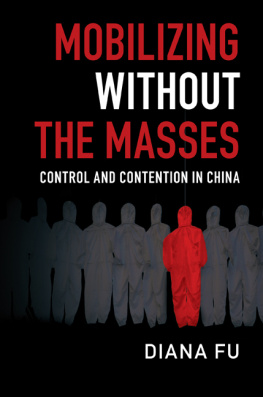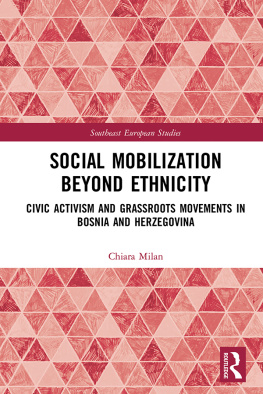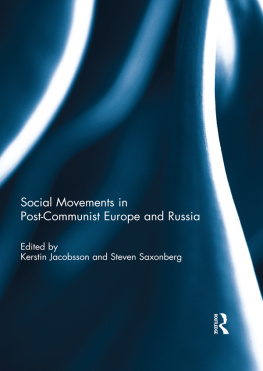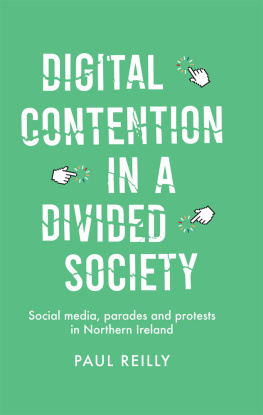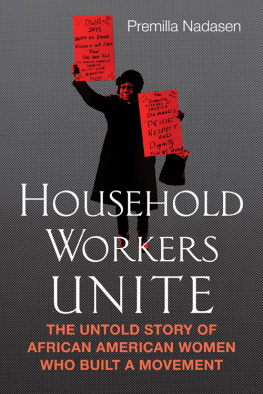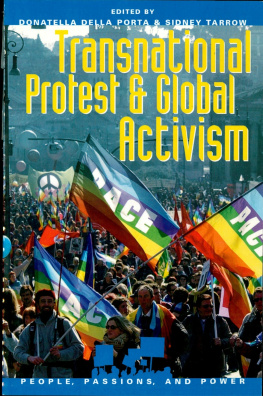MOBILIZING WITHOUT THE MASSES
When advocacy organizations are forbidden from rallying people to take the streets, what do they do? When activists are detained for coordinating protests, are their hands ultimately tied? Based on political ethnography inside both legal and blacklisted labor organizations in China, this book reveals how state repression is deployed on the ground and to what effect on mobilization. It presents a novel dynamic of civil society contention mobilizing without the masses that lowers the risk of activism under duress. Instead of facilitating collective action, activists coach the aggrieved to challenge authorities one by one. In doing so, they lower the risks of organizing while empowering the weak. This dynamic represents a third pathway of contention that challenges conventional understandings of mobilization in an illiberal state. It takes readers inside the world of underground labor organizing and opens the black box of repression inside the worlds most powerful authoritarian state.
Diana Fu is Assistant Professor of Asian Politics at the University of Toronto. This book builds upon her DPhil dissertation from Oxford University. Previously, she was Walter H. Shorenstein Postdoctoral Fellow at Stanford University and a pre-doctoral fellow at the Massachusetts Institute of Technology. Her research has been supported by the Harold Hyam Wingate Foundation, the Chiang Ching Kuo Foundation, and the Rhodes Trust. Her academic articles have been published in Governance, Comparative Political Studies , and Modern China . Her writing and research have appeared in The Economist, Boston Review, PostGlobal , and Nicholas Kristofs On the Ground Blog for The New York Times .
Studies of the Weatherhead East Asian Institute, Columbia University
The Studies of the Weatherhead East Asian Institute of Columbia University were inaugurated in 1962 to bring to a wider public the results of significant new research on modern and contemporary East Asia.
CAMBRIDGE STUDIES IN CONTENTIOUS POLITICS
General Editor
Doug McAdam Stanford University and Center for Advanced Study in the Behavioral Sciences
Editors
Mark Beissinger Princeton University
Donatella della Porta Scuola Normale Superiore
Jack A. Goldstone George Mason University
Michael Hanagan Vassar College
Holly J. McCammon Vanderbilt University
David S. Meyer University of California, Irvine
Sarah Soule Stanford University
Suzanne Staggenborg University of Pittsburgh
Sidney Tarrow Cornell University
Charles Tilly (d. 2008) Columbia University
Elisabeth J. Wood Yale University
Deborah Yashar Princeton University
Rina Agarwala, Informal Labor, Formal Politics, and Dignified Discontent in India
Ronald Aminzade, Race, Nation, and Citizenship in Post-Colonial Africa: The Case of Tanzania
Ronald Aminzade et al., Silence and Voice in the Study of Contentious Politics
Javier Auyero, Routine Politics and Violence in Argentina: The Gray Zone of State Power
Phillip M. Ayoub, When States Come Out: Europes Sexual Minorities and the Politics of Visibility
Amrita Basu, Violent Conjunctures in Democratic India
W. Lance Bennett and Alexandra Segerberg, The Logic of Connective Action: Digital Media and the Personalization of Contentious Politics
Nancy Bermeo and Deborah J. Yashar, Parties, Movements, and Democracy in the Developing World
Clifford Bob, The Global Right Wing and the Clash of World Politics
Clifford Bob, The Marketing of Rebellion: Insurgents, Media, and International Activism
Charles Brockett, Political Movements and Violence in Central America
Valerie Bunce and Sharon Wolchik, Defeating Authoritarian Leaders in Postcommunist Countries
Lars-Erik Cederman, Kristian Skrede Gleditsch, and Halvard Buhaug, Inequality, Grievances, and Civil War
()
MOBILIZING WITHOUT THE MASSES
Control and Contention in China
Diana Fu
University of Toronto


University Printing House, Cambridge CB 2 8 BS , United Kingdom One Liberty Plaza, 20th Floor, New York, NY 10006, USA 477 Williamstown Road, Port Melbourne, VIC 3207, Australia 314321, 3rd Floor, Plot 3, Splendor Forum, Jasola District Centre, New Delhi 110025, India 79 Anson Road, #06-04/06, Singapore 079906 Cambridge University Press is part of the University of Cambridge. It furthers the Universitys mission by disseminating knowledge in the pursuit of education, learning, and research at the highest international levels of excellence. www.cambridge.org Information on this title: www.cambridge.org/9781108420549 DOI : 10.1017/9781108354707 Diana Fu 2018 This publication is in copyright. Subject to statutory exception and to the provisions of relevant collective licensing agreements, no reproduction of any part may take place without the written permission of Cambridge University Press. First published 2018 Printed in the United States of America by Sheridan Books, Inc. A catalogue record for this publication is available from the British Library. ISBN 978-1-108-42054-9 Hardback ISBN 978-1-108-43041-8 Paperback Cambridge University Press has no responsibility for the persistence or accuracy of URL s for external or third-party internet websites referred to in this publication and does not guarantee that any content on such websites is, or will remain, accurate or appropriate.
For my family and for those at the front lines
Contents
Figures and Tables
Figures
Tables
Preface
Behind every book is another untold story this is mine. This book originates from my undergraduate years at the University of Minnesota. Under the tutelage of Raymond Duvall, Daniel Kelliher, Ann Waltner, Sharilyn Geistfled, and many others, I struck out in my junior year to do fieldwork in Beijing. I was only dimly aware of what this consisted, but I knew one thing for certain: I was and continue to be drawn to the everyday experiences of marginalized people. Every other day, I crammed into a sweat-stenched bus that jammed its way through the Beijing traffic and dropped me off at a hutong in the second ring of the city. There, I talked, played, and traded stories with participants of one of Chinas first migrant NGOs. It was also there that I tried my hand at ethnography the neck-deep immersion of oneself into the culture of ones subjects. It was hard; it was exhilarating. I came back with a fistful of field notes and a stomach full of words, as the migrant women would often say. With the unflagging support of my mentors, this project became my first publication and set my research trajectory for the next decade.
During my first year of graduate study at Oxford University, I felt terribly lost in the city of spires. Lost among restless, active minds, the swooshing gowns at Rhodes House, and the Latin recitations at formal dinner. My supervisors Vivienne Shue, Rachel Murphy, and Maria Jaschok (M.Phil) helped me to stay on course, as did Rana Mitter and Patricia Thornton. Vivienne advised me to do what I was good at regardless of what type of research was a la mode, advice that I have echoed to my own students. For all of its dynastic traditions, Oxford gave me the chance to think unfettered by conventions, which brought its own burdens. Dear friends including Rachel and Deborah carried me through dark times, as did my dance partner.
Oxford also allowed me to disappear into fieldwork for nearly two years, supported by the Rhodes Trust, the Harold Hyam Wingate Foundation, and the Chiang Ching-kuo Foundation. Back in China, I encountered new mentors and friends including Ching Kwan Lee, Guang Lei, Pun Ngai, Shen Yuan, Zhu Jiangang, Zheng Guanghuai, and Huang Yan. Through their guidance, I discovered a new world of labor activism. I met some of the most tenacious and committed activists and workers during this period. I admired their resilience, humor, and wiliness in tough circumstances. I also realized just how little I could offer them besides an empathetic ear and some company. This book is really their stories, which deserve to be recorded.
Next page
